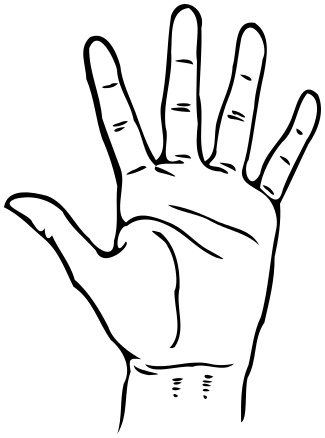 Apple (Nasdaq: AAPL) has taken the interesting step of getting 40 new patents in China, in what looks like an opening move that could ultimately see it target the growing number of Chinese cellphone makers that use Google’s (Nasdaq: GOOG) popular Android cellphone operating system. (English article) The report in the China Daily focuses on the more obvious potential aims of the patents, such as closing a slew of bogus Apple stores that have sprung up in China as Apple’s sales have soared to surpass those of leading PC maker Lenovo (HKEx: 992). (previous post) But the article points out the new patents also cover Apple’s popular user-friendly smartphone operating system (OS), which has been largely responsible for the huge boom in its iPhone and smartphone sales in general over the last 3 years. Apple has argued that Google’s free Android OS, which has been embraced by many of the world’s top cellphone makers, is a copycat of its own OS, and has successfully sued to halt the sale of popular Android-based smartphones and tablet PCs from Taiwan’s HTC (Taipei: 2498) and Korea’s Samsung (Seoul: 005930). Based on that behavior, this new round of patent filings in China looks like Apple is preparing to sue Chinese smartphone makers like ZTE (HKEx: 763; Shenzhen: 000063), Lenovo and TCL Communications (HKEx: 2618; Shenzhen: 000100), which all use Android. ZTE in particular could be at big risk, as its recent drive to become a global leader in smartphones costing as little as $100 each (previous post) relies heavily on Android. If Apple does file such a lawsuit, it will be interesting to see how China’s courts react as obviously any ruling in Apple’s favor could deal a big blow to the domestic industry. But anyone industry watchers should also note that Chinese courts don’t appear to have any power to make temporary rulings like judges do in the US, meaning any enforcement action can only occur after a judge makes a final decision — a process that could take months or even a year. Still, considering Apple’s success so far in the US against giants like Samsung and HTC, Chinese smartphone makers would be well advised to start drawing up plans for new Android alternatives if and when Apple moves its anti-Android battle to China.
Apple (Nasdaq: AAPL) has taken the interesting step of getting 40 new patents in China, in what looks like an opening move that could ultimately see it target the growing number of Chinese cellphone makers that use Google’s (Nasdaq: GOOG) popular Android cellphone operating system. (English article) The report in the China Daily focuses on the more obvious potential aims of the patents, such as closing a slew of bogus Apple stores that have sprung up in China as Apple’s sales have soared to surpass those of leading PC maker Lenovo (HKEx: 992). (previous post) But the article points out the new patents also cover Apple’s popular user-friendly smartphone operating system (OS), which has been largely responsible for the huge boom in its iPhone and smartphone sales in general over the last 3 years. Apple has argued that Google’s free Android OS, which has been embraced by many of the world’s top cellphone makers, is a copycat of its own OS, and has successfully sued to halt the sale of popular Android-based smartphones and tablet PCs from Taiwan’s HTC (Taipei: 2498) and Korea’s Samsung (Seoul: 005930). Based on that behavior, this new round of patent filings in China looks like Apple is preparing to sue Chinese smartphone makers like ZTE (HKEx: 763; Shenzhen: 000063), Lenovo and TCL Communications (HKEx: 2618; Shenzhen: 000100), which all use Android. ZTE in particular could be at big risk, as its recent drive to become a global leader in smartphones costing as little as $100 each (previous post) relies heavily on Android. If Apple does file such a lawsuit, it will be interesting to see how China’s courts react as obviously any ruling in Apple’s favor could deal a big blow to the domestic industry. But anyone industry watchers should also note that Chinese courts don’t appear to have any power to make temporary rulings like judges do in the US, meaning any enforcement action can only occur after a judge makes a final decision — a process that could take months or even a year. Still, considering Apple’s success so far in the US against giants like Samsung and HTC, Chinese smartphone makers would be well advised to start drawing up plans for new Android alternatives if and when Apple moves its anti-Android battle to China.
Bottom line: Apple’s new round of patents in China look like the prelude to lawsuits against domestic smartphone makers like ZTE, which rely heavily on Google’s free Android operating system.
苹果(AAPL.O)在华成功申请了40项新专利,其终极目标看似是对采用谷歌(GOOG.O)Android系统的中国手机商亮剑的第一步。《中国日报》的报导侧重苹果旨在专利维权的一面,例如关闭苹果山寨零售店等。由于苹果电脑在华销量大涨,超过PC领军企业联想(0992.HK),苹果山寨店如雨後春笋般涌现。但文章指出,苹果新申请的专利还包括其界面友好的智能手机操作系统(OS),这一操作系统是过去三年推动iPhone和智能手机销量整体上升的重要原因。苹果辩称,全球许多顶级手机商采用的谷歌免费提供的Android系统,是抄袭苹果OS系统的设计。苹果还在宏达电(HTC)(2498.TW)和三星(005930.KS)专利侵权案中胜诉,成功迫使两家公司的Android智能手机和平板电脑暂停销售。鉴于此举,苹果在华新一轮的专利申请,看似将准备起诉使用Android系统的中国智能手机制造商,例如中兴通讯(000063.SZ; 0763.HK)、联想和TCL通讯(2618.HK)。中兴通讯面临的风险尤其大,因为其近期力争成为售价低至100美元的智能手机的全球领军企业,该公司的这一计划严重依赖Anroid系统。如果苹果提出侵权诉讼,中国法院如何回应是件有趣的事情,因为任何明显有利于苹果的判决,都将重创中国手机产业。但业内观察者也指出,中国法庭进行终裁後才会有执行举措,而法庭裁判过程往往耗时数月甚至一年。话说回来,考虑到苹果在美胜诉三星和宏达电侵权,中国智能手机商最好早做打算,制定替代Android的新计划,以防苹果万一在华打响反击Android战役。
一句话:苹果在华新一轮专利申请,看似是起诉中兴通讯等中国智能手机商的前奏,这些本土企业严重依赖谷歌免费提供的Android操作系统。
Related postings 相关文章:
◙ Low-Cost Apple iPhone to Bite ZTE, Lenovo 苹果推低端iPhone 冲击中兴和联想
◙ Apple on a China Roll, Ambushing Nokia, Lenovo 苹果伏击诺基亚和联想 在华发展势如破竹

 There’s a couple of interesting new hires out there from Chinese tech firms Huawei and Lenovo (HKEx: 992), which are both clearly aimed at boosting their global operations. Whether either will succeed is a different matter, though both look like good ideas to me at first glance. First Huawei, which has hired IBM (NYSE: IBM) as a brand strategy consultant for its push into tablet PCs, smartphones and cloud computing. (
There’s a couple of interesting new hires out there from Chinese tech firms Huawei and Lenovo (HKEx: 992), which are both clearly aimed at boosting their global operations. Whether either will succeed is a different matter, though both look like good ideas to me at first glance. First Huawei, which has hired IBM (NYSE: IBM) as a brand strategy consultant for its push into tablet PCs, smartphones and cloud computing. ( New signals coming from Lenovo (HKEx: 992) and Taiwan smartphone maker HTC (Taipei: 2498) indicate that both are strongly considering bids in the upcoming auction of Hewlett-Packard’s (NYSE: HPQ) PC business, which also happens to include its much smaller smartphone unit. But whereas HTC’s potential bid looks smart, Lenovo’s apparent position needs some serious rethinking. Let’s start with the simpler case of HTC, whose early bet on smartphones has made it an overnight sensation, propelling it past a struggling Nokia (Helsinki: NOK1V) earlier this year in terms of market value. (
New signals coming from Lenovo (HKEx: 992) and Taiwan smartphone maker HTC (Taipei: 2498) indicate that both are strongly considering bids in the upcoming auction of Hewlett-Packard’s (NYSE: HPQ) PC business, which also happens to include its much smaller smartphone unit. But whereas HTC’s potential bid looks smart, Lenovo’s apparent position needs some serious rethinking. Let’s start with the simpler case of HTC, whose early bet on smartphones has made it an overnight sensation, propelling it past a struggling Nokia (Helsinki: NOK1V) earlier this year in terms of market value. ( Well, it seems we now know at least one company that’s going to adopt Baidu’s (Nasdaq: BIDU) new mobile operating system, which it launched with fanfare last week (
Well, it seems we now know at least one company that’s going to adopt Baidu’s (Nasdaq: BIDU) new mobile operating system, which it launched with fanfare last week ( history at new product development isn’t very strong. But I’ll also take this rare opportunity to break with the critics and say that Baidu’s new OS at least offers an interesting China-specific alternative to the other products on the market, as well as special access to Baidu’s market-leading search technology. Baidu has already proven that Chinese Web surfers do prefer a China-specific product to a one-size-fits-all approach like Google’s or Yahoo’s (Nasdaq: YHOO), so perhaps the same will be true for mobile Web surfing. Still, Dell is hardly a big name in the mobile Internet space, and, in fact, I don’t think I’ve ever seen anyone here in China using a Dell brand mobile phone or tablet PC. To succeed, Baidu will have to sign up some bigger cellphone makers in the next few months, with domestic names like ZTE (HKEx: 763; Shenzhen: 000063), Lenovo (HKEx: 992), TCL (Shenzhen 000100) and Huawei looking like the best candidates. If it can do that, and if its mobile OS proves reliable and user friendly, I would give it as high as a 50 percent chance of gaining a significant portion — perhaps up to 15 or 20 percent — of China’s mobile OS market.
history at new product development isn’t very strong. But I’ll also take this rare opportunity to break with the critics and say that Baidu’s new OS at least offers an interesting China-specific alternative to the other products on the market, as well as special access to Baidu’s market-leading search technology. Baidu has already proven that Chinese Web surfers do prefer a China-specific product to a one-size-fits-all approach like Google’s or Yahoo’s (Nasdaq: YHOO), so perhaps the same will be true for mobile Web surfing. Still, Dell is hardly a big name in the mobile Internet space, and, in fact, I don’t think I’ve ever seen anyone here in China using a Dell brand mobile phone or tablet PC. To succeed, Baidu will have to sign up some bigger cellphone makers in the next few months, with domestic names like ZTE (HKEx: 763; Shenzhen: 000063), Lenovo (HKEx: 992), TCL (Shenzhen 000100) and Huawei looking like the best candidates. If it can do that, and if its mobile OS proves reliable and user friendly, I would give it as high as a 50 percent chance of gaining a significant portion — perhaps up to 15 or 20 percent — of China’s mobile OS market. Don’t do it! Those are the only words of advice I can offer Lenovo (HKEx: 992) Chairman and founder Liu Chuanzhi, whose latest comments indicate his is weighing a possible bid for the PC assets that global leader Hewlett-Packard (NYSE: HPQ) is putting up for sale. (
Don’t do it! Those are the only words of advice I can offer Lenovo (HKEx: 992) Chairman and founder Liu Chuanzhi, whose latest comments indicate his is weighing a possible bid for the PC assets that global leader Hewlett-Packard (NYSE: HPQ) is putting up for sale. ( The rest of the world may be buzzing about Steve Jobs’ announcement that he will retire as CEO of Apple (Nasdaq: AAPL), but my attention has been captured by a smaller piece of news that Apple may soon enter the low-cost smartphone business. Apple never discusses its future plans, and accordingly this latest piece of news is only gossip so far, citing two knowledgeable sources saying a low-cost version of the iPhone 4 is now being developed to go head-to-head with a segment of the market now dominated by phones running on Google’s (Nasdaq: GOOG) free Android operating system. (
The rest of the world may be buzzing about Steve Jobs’ announcement that he will retire as CEO of Apple (Nasdaq: AAPL), but my attention has been captured by a smaller piece of news that Apple may soon enter the low-cost smartphone business. Apple never discusses its future plans, and accordingly this latest piece of news is only gossip so far, citing two knowledgeable sources saying a low-cost version of the iPhone 4 is now being developed to go head-to-head with a segment of the market now dominated by phones running on Google’s (Nasdaq: GOOG) free Android operating system. ( The inevitable as finally happened, as China overtook the US in the second quarter of this year to become the world’s biggest PC market both in terms of unit sales and revenue, according to new data from IDC. (
The inevitable as finally happened, as China overtook the US in the second quarter of this year to become the world’s biggest PC market both in terms of unit sales and revenue, according to new data from IDC. ( Leading Chinese PC maker Lenovo (HKEx: 992) has finally discovered a winning formula, beating market expectations with a profit that doubled in its latest fiscal quarter on the back of strong sales in its core emerging markets business. (
Leading Chinese PC maker Lenovo (HKEx: 992) has finally discovered a winning formula, beating market expectations with a profit that doubled in its latest fiscal quarter on the back of strong sales in its core emerging markets business. ( What a difference a couple of years makes. Apple (Nasdaq: AAPL), a tiny player in China as little as two years ago, has suddenly become a new dominant force in both China’s computing and cellphone scene, taking on traditional market leaders Lenovo (HKEx: 992) and Nokia (Helsinki: NOK1V.HE) in their respective spaces. The US maker of wildly popular iPhone cellphones and iPad tablet PCs officially surpassed Lenovo in terms of total China sales in the quarter through June (
What a difference a couple of years makes. Apple (Nasdaq: AAPL), a tiny player in China as little as two years ago, has suddenly become a new dominant force in both China’s computing and cellphone scene, taking on traditional market leaders Lenovo (HKEx: 992) and Nokia (Helsinki: NOK1V.HE) in their respective spaces. The US maker of wildly popular iPhone cellphones and iPad tablet PCs officially surpassed Lenovo in terms of total China sales in the quarter through June (